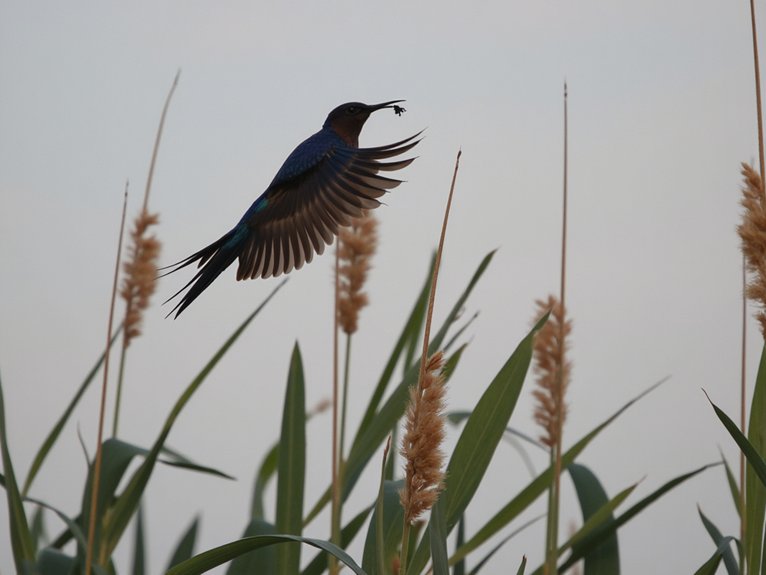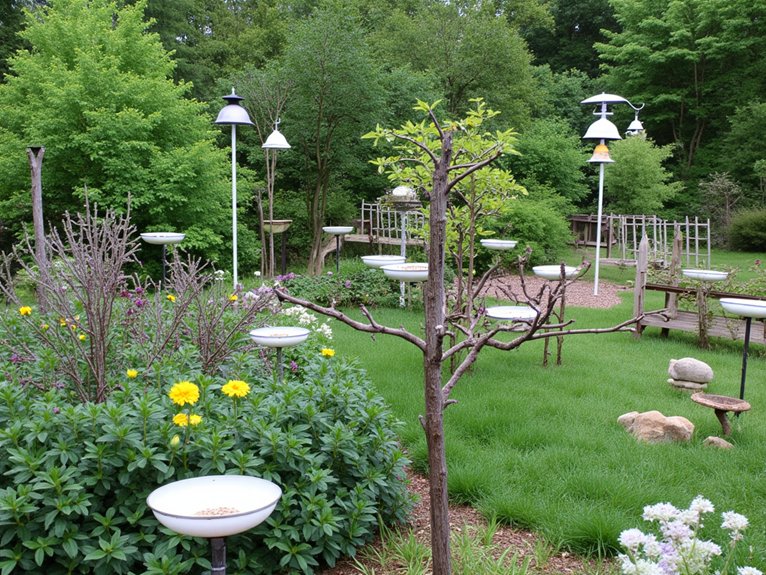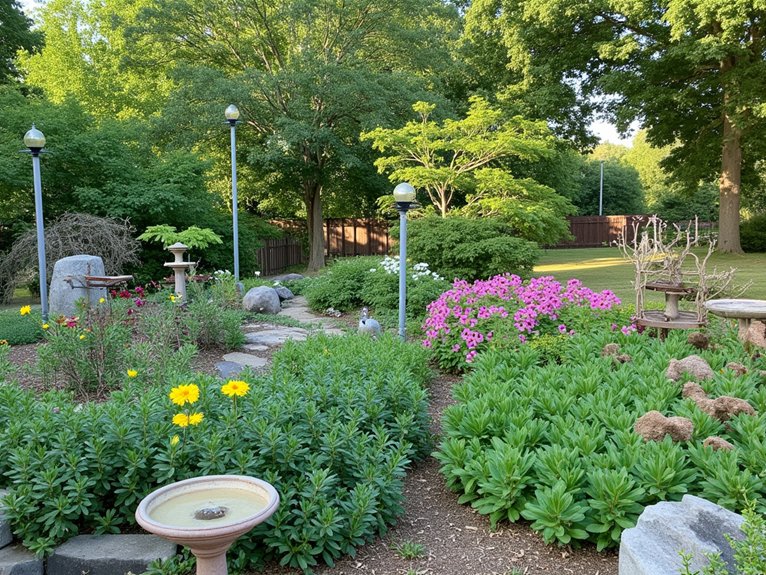Nature’s most effective mosquito control doesn’t require chemicals or costly equipment – it relies on our feathered friends. Birds consume thousands of mosquitoes daily, with species like Purple Martins eating up to 2,000 insects in 24 hours. “Birds are the perfect natural pest control solution,” says ornithologist Dr. Sarah Chen of Cornell University. By transforming a backyard into a bird sanctuary, homeowners can tap into this free and sustainable method of mosquito management. The process starts with understanding which birds target mosquitoes most effectively.
Contents
Why Birds Are Your Natural Mosquito Control Allies

While chemical mosquito control methods can be effective, nature provides a more elegant solution through insectivorous birds.
Birds like the Barn Swallow and American Robin display remarkable bird behavior, consuming hundreds of mosquitoes daily while maintaining ecosystem balance in your yard. These natural allies work tirelessly, with species such as the Nighthawk taking over mosquito patrol during evening hours.
“Birds are incredibly efficient at controlling mosquito populations,” notes ornithologist Dr. Sarah Chen. “Just one family of swallows can eliminate over 6,000 mosquitoes per week from a typical backyard.” This natural approach not only reduces pest problems but also creates a thriving habitat for beneficial wildlife.
Meet the Top Mosquito-Eating Birds in North America
Five remarkable bird species serve as nature’s elite mosquito control team across North America, each bringing unique hunting abilities to your yard. The American Robin patrols garden spaces, while Barn Swallows sweep through the air with acrobatic precision. For bird identification, watch for the Ruby-throated Hummingbird’s distinctive hover and the Blackpoll Warbler’s methodical foraging. The Common Nighthawk emerges at dusk, completing the mosquito-hunting crew.
These natural pest controllers enhance garden aesthetics while reducing mosquito populations. The Barn Swallow alone consumes up to 850 insects daily, making these feathered allies invaluable for maintaining a mosquito-free environment.
Creating the Perfect Bird-Friendly Garden Environment

Once you’ve identified the best mosquito-eating birds for your area, transforming your garden into an avian paradise requires strategic planning and the right combination of features.
Start by incorporating bird friendly plants that provide both food and shelter. Native flowers, berries, and seed-producing plants create natural feeding stations. Next, add nesting materials by placing a suet cage filled with yarn, twine, and small strips of fabric near feeding areas.
Install water features like birdbaths or small fountains, keeping them clean and filled. Place birdhouses at varying heights throughout the garden, spacing them 20-30 feet apart to accommodate different species’ territorial needs.
Waterfowl: The Unsung Heroes of Mosquito Management
Waterfowl serve as nature’s efficient mosquito control specialists, with certain duck species consuming hundreds of mosquitoes daily in wetland areas. The Muscovy duck, in particular, excels at targeting mosquitoes throughout their lifecycle, from larvae to adults.
Duck habitats near ponds and marshes naturally interrupt mosquito breeding cycles. “India Runner ducks are especially effective, as they’re constantly foraging through shallow water where mosquitoes lay eggs,” notes wildlife expert Dr. Sarah Chen. These natural pest controllers work tirelessly, swimming through vegetation and snatching insects from the air.
Consider adding a small pond or wetland feature to attract these helpful waterfowl to your property.
Essential Tips for Maintaining a Bird-Safe Garden

Creating a bird-safe garden requires careful attention to both natural features and potential hazards that could harm your feathered visitors. “The key is making your garden welcoming while eliminating common dangers that birds face in urban environments,” explains ornithologist Dr. Sarah Chen.
Start by incorporating bird friendly plants like native flowers and shrubs, maintaining proper spacing to allow safe flight paths. Regular garden maintenance should include:
- Removing toxic pesticides
- Keeping bird feeders clean
- Securing loose netting
- Placing decals on windows
- Trimming branches away from high-traffic areas
These steps create a sanctuary where birds can thrive while helping control mosquito populations naturally.
